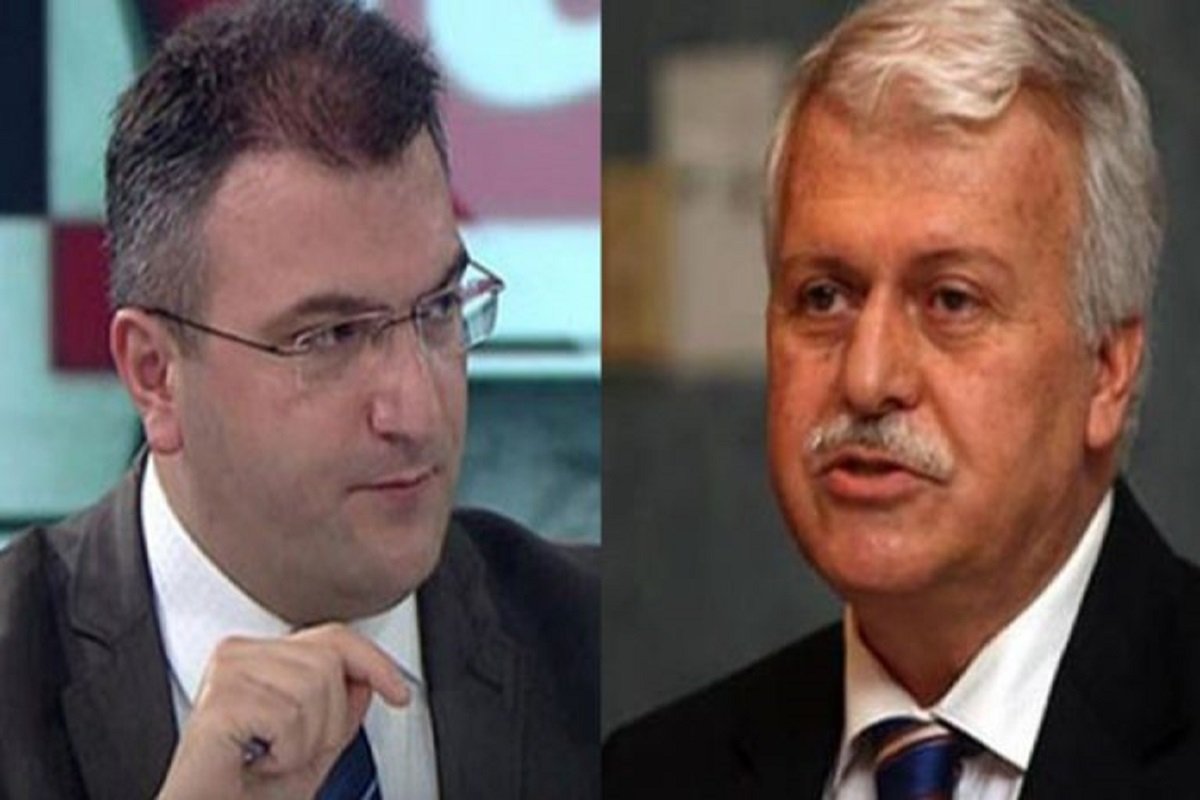Cem Küçük, a staunchly pro-government journalist known for his attacks on government critics on social media, has said former Zaman daily executive and columnist Hüseyin Gülerce, who became a secret witness during media hearings, was tied to Turkish intelligence for a long time.
Küçük attacked on Wednesday the critics of Gülerce on his column in Turkey daily. Underlining that Gülerce has been working for government and providing critical intelligence about Gülen movement since February 11, 2012, Küçük said Gülerce risked his life and made sacrifices for his nation by working against the Gülen movement from within.
“Gülerce started aiding the STATE before 17-25 December process [Dec.17-25 corruption probe in 2013, which implicated several members of then-Prime Minister Recep Tayyip Erdoğan’s family, his inner circle and four former ministers] since February 11, 2012 and that is when he first submitted intelligence about Gülen to the STATE… Of course Gülerce continued to exist within Gülen organization during this period and went on collecting critical information for the STATE. This is a big devotion and sacrifice. Gülerce risked his life,” said Küçük.
The Turkish government accuses the Gülen movement, inspired by the views of Turkish-Islamic Fethullah Gülen, of masterminding Turkey’s July 2016 controversial coup attempt, a claim strongly denied by Gülen and his movement.
Fethullah Gülen in an interview with France 24 that Adil Öksüz, who is accused by the Turkish government of being the key figure in the putsch, had also links to Turkey’s National Intelligence Organization (MİT) since he was released being detained near an airbase in Ankara during the coup.
One of the main pieces of evidence cited by the Turkish government for Gülen’s alleged involvement in the coup is Öksüz, who is accused of being the head of the Gülen movement’s alleged network within the Turkish Air Forces. He was briefly detained after the coup attempt and is still at large.
On April 5, the main opposition Republican People’s Party (CHP) leader Kemal Kılıçdaroğlu said President Recep Tayyip Erdoğan and Prime Minister Binali Yıldırım do not want the coup attempt to be investigated because they are concerned such a probe could extend to themselves.
“It was a coup attempt designed to fail,” said Kılıçdaroğlu, asking many questions about Adil Öksüz: “Which state institution imported Öksüz’s GPS device? The Prime Ministry will order it, and it will be investigated. He had two mobiles and one GPS device. Why was he not handcuffed like everyone else was? In 2014, a change was made to the MİT law. It said that no MİT personnel could be detained or arrested without the order of the prime minister. Why wasn’t Adil Öksüz arrested or detained?”
On April 25, CHP deputy Eren Erdem claimed that Adil Öksüz and Defense Minister Fikri Işık met a day ahead of a July 15 coup attempt in Turkey.
Speaking to Tele 1 TV, Erdem said Öksüz and Işık met in Sakarya on July 14 and that there is video footage of the meeting. He further claimed that the Turkish National Intelligence Organization (MİT) knows who has the video.
While many questions about what happened on the day and night of the July 15 coup attempt persist, it was revealed that Chief of General Staff Gen. Hulusi Akar and MİT Undersecretary Hakan Fidan had a six-hour meeting in Ankara a day before the failed coup.
The role of Akar and Fidan has been at the center of many questions concerning the July 15 coup attempt. According to official reports, a major informed MİT about the coup plot at 14:00 and Fidan was with Akar at military headquarters until 20:30, half an hour before the coup attempt was launched.
Despite both President Erdoğan and Prime Minister Binali Yıldırım having expressed their uneasiness with Fidan and Akar for failing to inform them about the coup attempt on July 15, and the fact that they had learned of the coup plan six hours earlier notwithstanding, the two retained their posts while over 150,000 people from state institutions were purged and jailed by the government after the coup attempt.
The government also prevented the parliamentary Coup Investigation Commission, which was set up to investigate the failed coup, from questioning Akar and Fidan.
Brig. Gen. Gökhan Şahin Sönmezateş, the commander of the team that targeted Erdoğan’s hotel in Marmaris, said in his defense in February that they received an order from the office of the Chief of General Staff but were intentionally deceived and kept waiting for four hours.
The government is at the center of criticism over dismissing 22,920 military personnel due to their alleged ties to the Gülen movement, despite the fact that the Turkish military stated on July 27 that only 8,651 military members including cadets and conscripts took part in the failed coup.
Contrary to accusations made by President Erdoğan and the Turkish government, the Foreign Affairs Committee of the UK Parliament concluded last month that Gülen and the movement he inspired as a whole were not behind the failed coup in Turkey.
The UK Parliament statement came a week after Germany rejected Erdoğan and the Turkish government’s accusations against the Gülen movement about July 15.
The head of Germany’s Federal Intelligence Service (BND), Bruno Kahl, said Turkey could not convince them that US-based Turkish-Islamic scholar Gülen was behind the failed coup in July.
Similarly, Devin Nunes, chairman of United States House Permanent Select Committee on Intelligence, said he has not seen any evidence showing Gülen’s involvement in the putsch in Turkey.
In addition, a report prepared by the EU Intelligence Analysis Centre (IntCen) revealed that the coup attempt was staged by a range of Erdoğan’s opponents due to fears of an impending purge. (turkishminute.com)
















